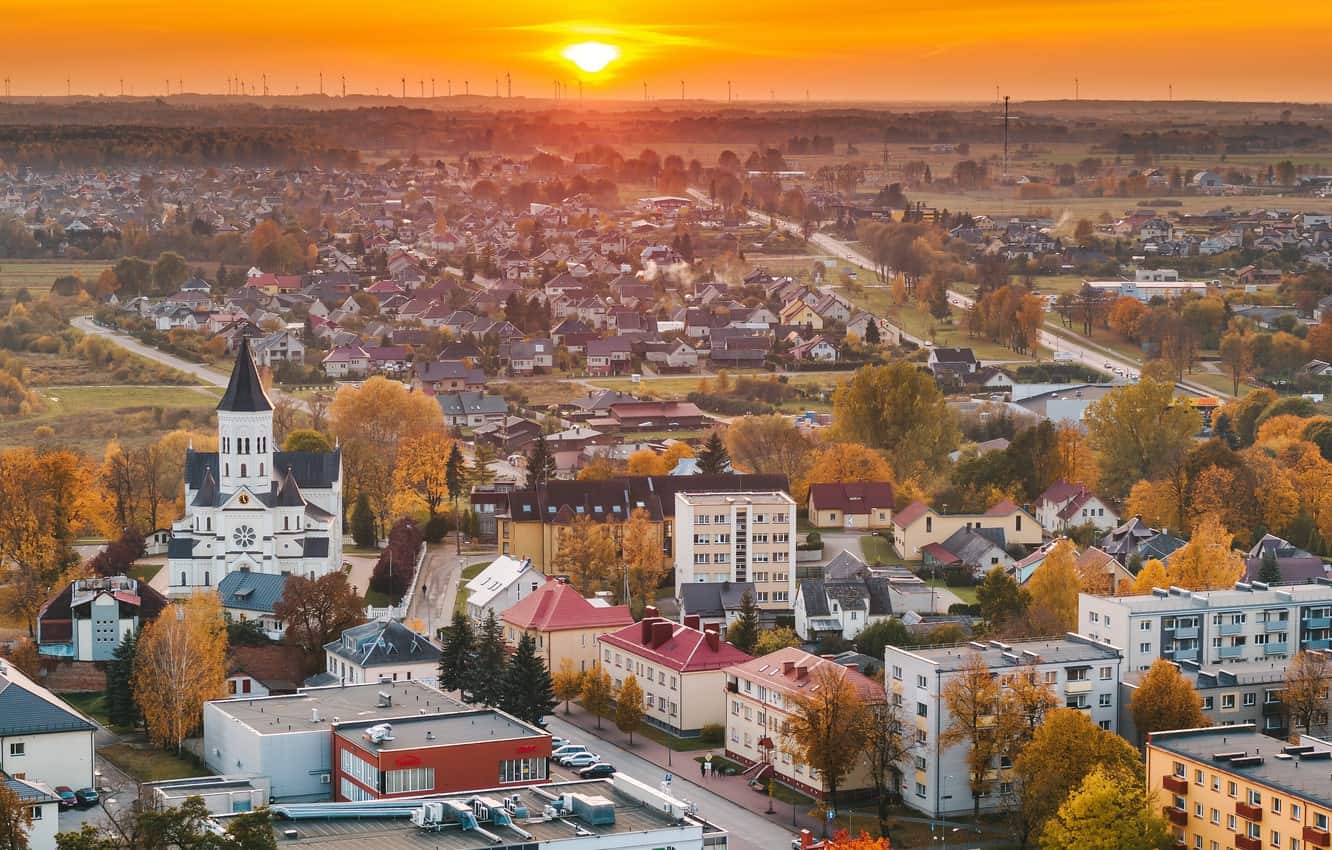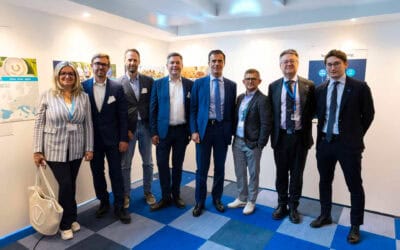22 May 2023
The linkage between Chemicals, Climate and Circularity issues in green public procurement.
Interview with Agnė Petrošiūtė from Tauragė Municipality
Written by Anna Zaccaro
An awareness of climate change, hazardous substances and the need for a circular economy exists in the current policy environment, but all too often these three dimensions of sustainability are considered one by one. Agnė Petrošiūtė from Tauragė Municipality tells us what they expect to accomplish thanks to EU funding and the Interreg Baltic Sea Region support.
Why have you decided to join this project?
Well, there is quite a lot to learn and improve on both at the national and at the municipality level. The system for green procurement is not so sophisticated so to say. We saw the chance to get in the field and gather as much knowledge as we could from the project and then transfer it to the national level.
#DidYouKnow
ChemClimCircle will address an important challenge in policy integration which is not yet on the local policy agendas: the linkage between Chemicals, Climate and Circularity issues in public procurement. To function safely in a circular economy, materials need to be circular, climate-neutral and tox-free.
Why do you need a transnational project to tackle your challenge?
We don’t have any sort of internal management system for the green public procurement, we kind of use what is given us to us at the national level. This project gives us a chance to see first-hand how green public procurement can be included at a municipal level, because other project partners are leaders in this. For example, Stockholm municipality has these internal strategies, systems and goals, which we do not have, thus we consider our participation in the project as a way for us to be more proactive. We need a transnational project because we need to learn from others outside Lithuania, we don´t have any example from municipalities in our country.
#DidYouKnow
The project will function as test cases in three partner municipalities (Stockholm, Taurage and Smiltene) and will involve a group of seven other municipalities in discussion. It aims to prepare a larger initiative to implement ChemClimCircle at Baltic Sea region level at a later stage.
What will be the result of your project? Who will benefit from these results?
Well, first we need to gather a sort of theoretical knowledge. There is the need to combine and find information on how can different aspects of green public procurement complement each other and how they can contradict each other. When tackling green public procurement there are different criteria to consider, like criteria on to reduce climate change or concerning circular economy, and there must be a concrete knowledge of how these criteria intertwine to be able to create an integral green public procurement approach. And after this first step, it must be applied, so we will create a guide for green public procurements and for the municipalities. A further outcome to consider is actually the trainings for the public procurers on the theoretical knowledge gathered, because the latter is quite specific thus there is a need to ease the information flow and enable public procurers to practically apply the knowledge we provide.
What do you think will be most challenging for the implementation of the project?
We can already see that a simple and yet challenging issue is rising already: English language. We are working in English in the project, however most of the people in municipalities they do not have a high level of English to understand or discuss these topics. Well, they are quite difficult topics per se and they require a specific vocabulary. So, it somehow has to be translated and this one thing that is often a barrier in these projects, not just Interreg projects but more in general, if we talk about Horizon or Interact for example. Another challenge will be to get more institutions to listen and engage in the theoretical knowledge transfer. We are quite positive on the matter since the Ministry of Environment here in Lithuania and other institutions already showed a high interest.
#DidYouKnow
The project contributes to soluting challenges HELCOM Baltic Sea Regional strategy for Nutrient Recycling, EU Water legislation, EU Circular Economy strategy and the Soil strategy for 2030.
Don’t miss these links
More recent news
How transnational cooperation is building Europe´s future with youth
Explore how transnational cooperation is transforming Europe, from addressing climate change to fostering local economic growth. This exhibition highlights the powerful impact of collaboration beyond borders in shaping a stronger, more united future.
CompositeCircle kicked off in Lappeenranta: setting the stage for circular innovation
The CompositeCircle project officially launched with a multi-day kick-off meeting in Lappeenranta, Finland, bringing together partners from across...
(No title)
Energy Equilibrium seminar in Lithuania — Energy Accumulation for municipal energy sector
With the support of Association of Local Authorities in Lithuania the seminar “Energy sector planning in municipalities for the transition to...




